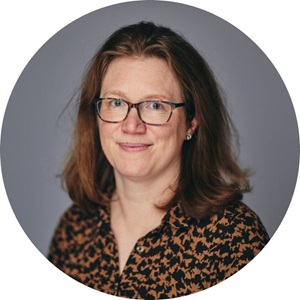Speaker Series N°9, co-hosted with the Charité Center for Global Health, will focus on the crucial role of high-quality research in strengthening pandemic and epidemic intelligence and guiding evidence-based public health decisions.
The session will highlight findings from the recently published Research Prioritization for Pandemic and Epidemic Intelligence, an initiative led by the WHO Hub for Pandemic and Epidemic Intelligence, in collaboration with Charité, GloPID-R, the WHO Science Division, and the Wellcome Trust. This global effort brought together researchers, public health experts, and decision-makers to identify and prioritize 23 key research areas crucial for effective public health surveillance.
The session will explore the outcomes and lessons from this research prioritization process, showcase examples of impactful research in pandemic intelligence, and discuss how these insights enhance surveillance and inform decision-making.
Key questions to be addressed include:
- How can researchers align with public health needs and strengthen disease surveillance?
- How can funding bodies coordinate to address fragmentation and ensure targeted support?
- How can research findings be effectively integrated into decision-making?
Our invited speakers—researchers, funders, and decision-makers—will share insights and discuthe way forward.
Join us for an engaging session on strengthening pandemic preparedness through prioritized research.
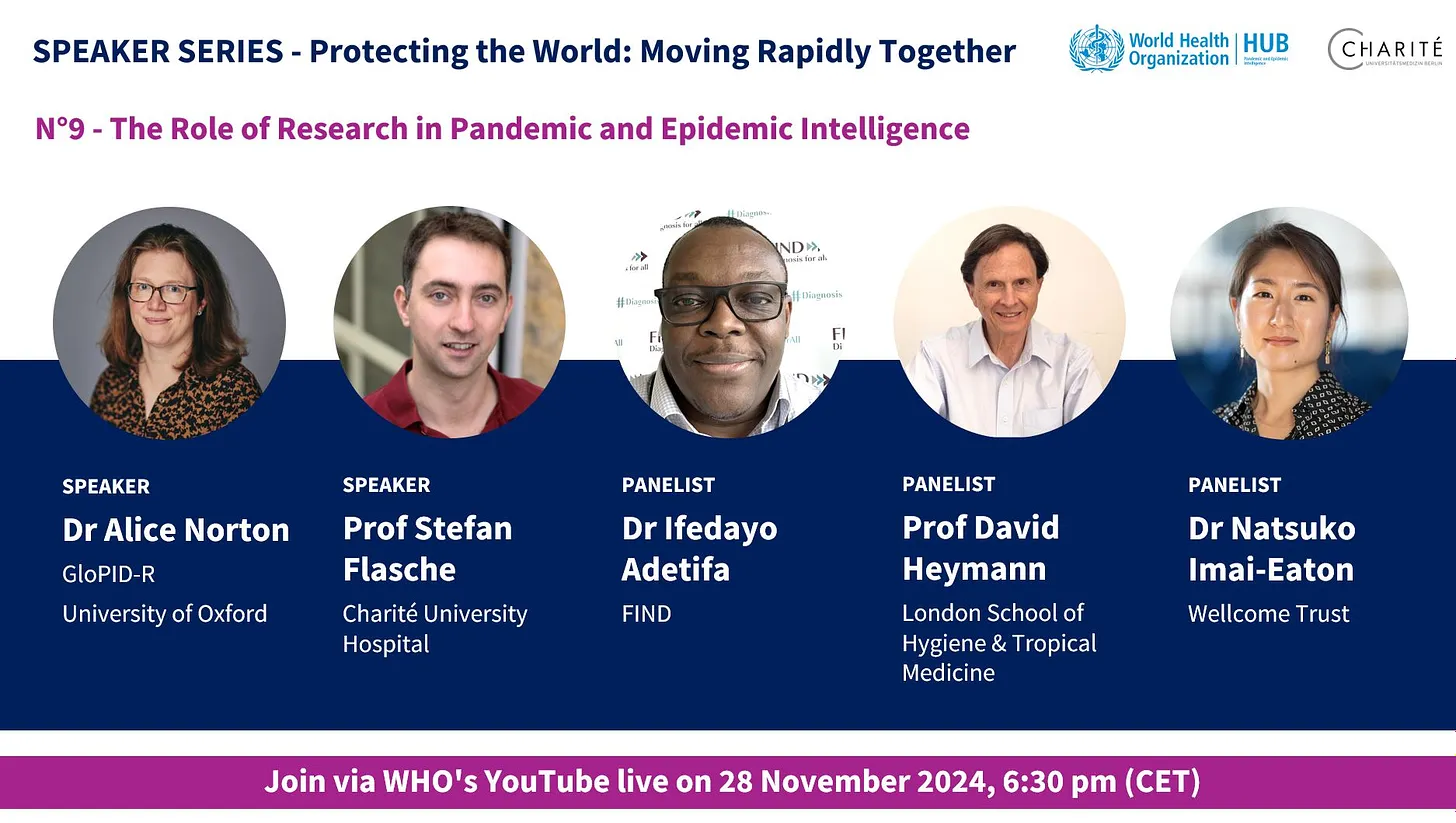
(Please contact pandemichub@who.int in case you run into technical difficulties registering or have questions.)
Due to space limitation in the event venue, on-site registration is on a first come, first served basis. You are encouraged to register for the event at your earliest convenience.
We look forward to rich and engaging conversations with you!
Speakers introduction:
Dr Alice Norton | Keynote Speaker
Lead of the Pandemic Sciences Institute’s Policy and Practice Research Group, University of Oxford
Dr Norton leads the Pandemic Sciences Institute’s Policy and Practice Research Group at the University of Oxford. Her group undertakes applied research on the design and implementation of policy and practice for pandemic preparedness and response. She also heads the Research and Policy team at the PSI for the Global Research Collaboration for Infectious Disease Preparedness (GloPID-R), conducting research and policy development to support global research funders in their preparedness and response to infectious diseases.
Dr Norton is also the Academic and Policy Lead for the Africa Pandemic Sciences Collaborative (with the Science for Africa Foundation) and is a Course Advisor for the International Health and Tropical Medicine Master's programme focusing on global health policy and evaluation and leadership.
Providing expertise, and technical guidance throughout all phases, Dr Norton is also a member of the Technical Working Group (TWG) for the Research Prioritization for Pandemic and Epidemic Intelligence.
Prof Stefan Flasche | Keynote Speaker

Professor of Infectious Disease Dynamics and Global Health, Charité University Hospital
Prof Flasche is an Einstein-Berlin University Alliance Professor for Infectious Disease Dynamics and Global Health at Charité University Hospital Berlin. He also holds a part-time position as Professor for Vaccine Epidemiology at the London School of Hygiene & Tropical Medicine (LSHTM). Enjoying collaboration across different disciplines and cultures, Prof Flasche’s primary research focus revolves around optimizing global immunization strategies, with a longstanding interest in disease transmission.
While a significant portion of his research has concentrated on pneumococci, Prof Flasche has a keen interest in topics such as outbreak response (SARS-CoV-2, Ebola, and swine flu), antimicrobial resistance, vector-borne diseases (dengue and malaria), respiratory syncytial virus (RSV), and health in humanitarian crises. He is a member Standing Committee on Vaccination (STIKO) at the Robert Koch Institute.
Dr Ifedayo Adetifa | Panelis
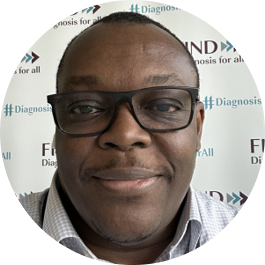
Chief Transformation Officer and CEO at FIND
Dr Adetifa, a seasoned pediatrician and accomplished infectious disease epidemiologist, currently serves as the Chief Transformation Officer and CEO at FIND, a Geneva-based NGO dedicated to ensuring equitable access to reliable diagnosis worldwide. Previously, Dr Adetifa was the Director General and CEO of the Nigeria Centre for Disease Control & Prevention (NCDC). During his tenure at the NCDC, he played a pivotal role in advancing Nigeria’s COVID-19 response. He also attracted substantial programme funds, managed significant budgets, and supervised a large team dedicated to combating outbreak and endemic pathogens.
Dr Adetifa’s extensive experience includes work at the national, regional, and international levels on Lassa fever, vaccines and immunization, respiratory syncytial virus, malaria, tuberculosis, and health systems. He is also currently a member of the Scientific Advisory Committee for the Coalition for Epidemic Preparedness Innovations (CEPI).
Prof David Heymann | Panelist
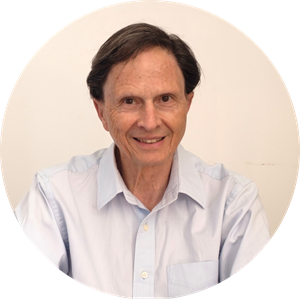
Professor of Infectious Disease Epidemiology, London School of Hygiene & Tropical Medicine
Prof Heymann is a medical doctor and epidemiologist, and Professor of Infectious Disease Epidemiology at the London School of Hygiene & Tropical Medicine (LSHTM). From 1989 to 2009 he held various leadership positions in infectious diseases at WHO including polio eradication. In 2003, he headed the WHO global response to SARS in his role as Executive Director of communicable diseases. In 1976, after spending two years working in India on smallpox eradication, he was a member of the CDC (Atlanta) team to investigate the first Ebola outbreak in DRC and stayed on in sub-Saharan Africa for 13 years in various field research positions on Ebola, monkeypox, Lassa Fever, malaria and other tropical diseases. After this period, he was seconded by CDC to WHO.
Prof Heymann has published over 275 peer reviewed articles and book chapters, is editor of the Control of Communicable Diseases Manual, and is an elected member of the UK Academy of Medical Sciences and the US National Academy of Medicine.
Dr Natsuko Imai-Eaton | Panelist
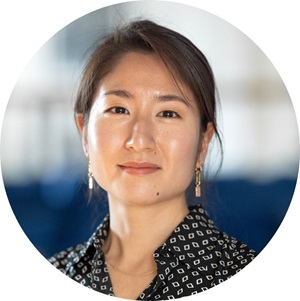
Research Lead in the Infectious Disease Strategic Programme, Wellcome Trust
Dr Imai-Eaton is a Research Lead in the Infectious Disease Strategic Programme at Wellcome Trust where she is responsible for developing the epidemic preparedness and response, surveillance, and pathogen genomic sequencing portfolio of research investments.
She has a background in infectious disease epidemiology and modelling. Prior to joining Wellcome, she spent 10 years at the WHO Collaborating Centre for Infectious Disease Modelling at Imperial College London, United Kingdom. She was responsible for coordinating the Centre’s outbreak response, providing real-time outbreak analysis of Ebola Virus Disease outbreaks in the Democratic Republic of the Congo and throughout the COVID-19 pandemic.
In her role at the Wellcome Trust, Dr Imai-Eaton served as an observer in the Technical Working Group (TWG) of the Research Prioritization for Pandemic and Epidemic Intelligence.
Dr Chikwe Ihekweazu | Welcome Remarks
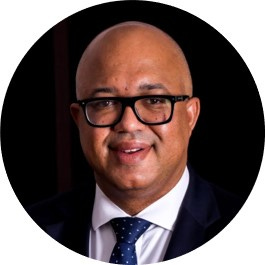
Deputy Executive Director of WHO's Health Emergencies Programme
Dr Ihekweazu is Deputy Executive Director for the World Health Organization's Health Emergencies Programme. In this role, he also leads the WHO Hub for Pandemic and Epidemic Intelligence, based in Berlin, Germany. Previously, Dr Ihekweazu was the first Director General of the Nigeria Centre for Disease Control (NCDC), which he led July 2016 to October 2021, building it from a small unit to a leading public health agency in Africa.
Dr Ihekweazu is trained as an infectious disease epidemiologist and has over 25 years’ experience working in senior public health and leadership positions in national public health institutes including NCDC, South African National Institute for Communicable Diseases, the UK's Health Protection Agency, and Germany’s Robert Koch Institute.
Dr Ihekweazu has led several short-term engagements for WHO, mainly building surveillance systems and responding to major infectious disease outbreaks.
Prof Beate Kampmann | Moderator
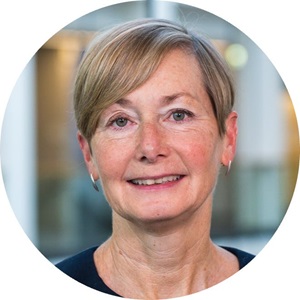
Co-Director of the Charité Center for Global Health
Prof Kampmann is Co-Director and scientific leader of the Charité Center for Global Health (CCGH) – A new platform for global health is being created within Berlin’s university medicine landscape, since January 2023.
Prof. Kampmann’s main areas of research are childhood Tuberculosis, HIV co-infection, and vaccinology. In mid-2010, Prof Kampmann was appointed as Theme Leader for Vaccines & Immunity research at the MRC Unit The Gambia. As part of this role, she directs a comprehensive research program on pediatric infection and immunity in both the UK and Africa. She worked at the Imperial College London for 25 years, before she moved on to the London School of Hygiene & Tropical Medicine (LSHTM), where she became Professor in Pediatric Infection & Immunity and Director of The Vaccine Center in 2010. She is the Director of IMPRINT– the IMmunizing PRegnant women and INfants network, one of the 5 MRC-funded networks for vaccines – and is one of the organizers of the International Neonatal and Maternal Immunization Symposium (INMIS). On January 1, 2023, she took up tenured W3 professorship for Global Health at Charité University Hospital and also heads the Charité Institute of International Health.
Dr Oliver Morgan | Moderator
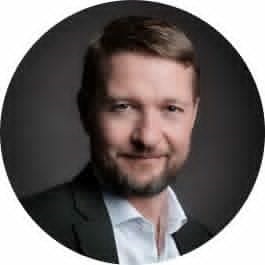
Director of Pandemic and Epidemic Intelligence Systems at the WHO Hub for Pandemic and Epidemic Intelligence
Dr Morgan is the Director of Pandemic and Epidemic Intelligence Systems at the WHO Pandemic Hub. He previously held the position of director of the Health Emergency Information and Risk Assessment Department in the WHO Health Emergencies Program.
From 2007 through 2016, Dr Morgan worked for the US CDC, where he held critical leadership positions in the Ebola response between November 2014 and February 2016. From March 2010 to October 2014, he was the CDC Country Director in the Dominican Republic. Dr Morgan was an Epidemic Intelligence Service Officer at CDC from 2007 to 2009 with the International Emerging Infections Program, during which time he conducted projects in Thailand, Bangladesh, Kenya, Uganda, and Guatemala. Before joining CDC, Dr Morgan worked for the UK Health Protection Agency, leading epidemiological investigations of outbreaks, chemical and radiation exposure incidents, terrorist bombings in London, natural disasters, and humanitarian civil conflicts. Dr Morgan has also worked as a consultant to the Pan American Health Organization (PAHO/WHO) in several countries. Dr Morgan’s academic achievements include a doctorate in epidemiology from Imperial College London and extensive publication in peer reviewed journals and reference books.

